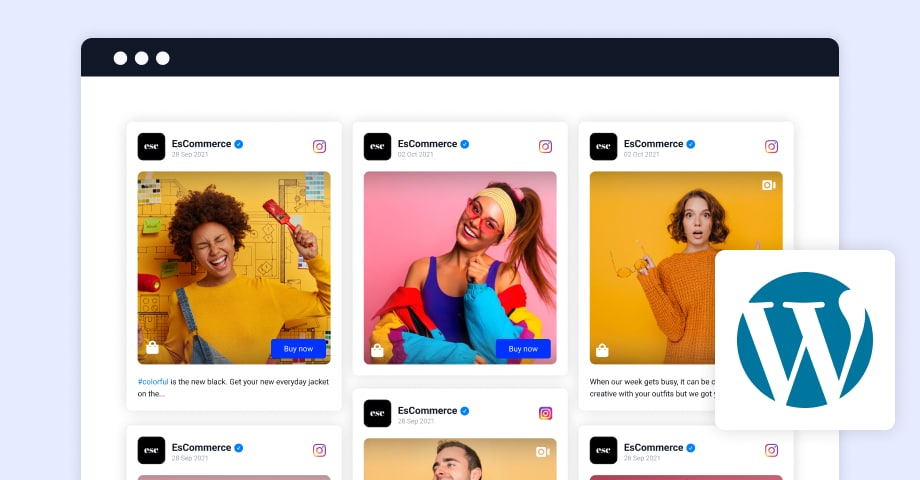In the world of SEO, acquiring high-quality backlinks is one of the most powerful strategies to boost your website’s ranking on search engines. Among the most valuable backlinks are those that come from EDU sites (websites with a .edu domain). EDU backlinks are highly regarded because educational institutions are seen as authoritative and trustworthy sources by search engines. However, earning backlinks from these sites isn’t an easy task. In this comprehensive guide, we’ll walk you through everything you need to know about getting backlinks from EDU sites, why they are important, and the best strategies to acquire them.

What Are EDU Backlinks and Why Do They Matter?
Before diving into strategies, let’s first understand what EDU backlinks are and why they are so valuable. EDU backlinks are backlinks that come from websites with a .edu domain. These sites belong to educational institutions, such as universities, colleges, and research organizations.
Why Are EDU Backlinks Important?
- Trust and Authority: Educational institutions are considered some of the most credible and authoritative sources on the internet. As a result, links from .edu domains carry significant weight in SEO, signaling to search engines that your website is trustworthy.
- Improved SEO Rankings: Since EDU backlinks are highly regarded, they can have a substantial impact on your site’s SEO rankings. Google values these backlinks because they come from trusted sources, leading to an increase in your site’s domain authority.
- Referral Traffic: EDU backlinks can also generate valuable referral traffic. Students, faculty, and researchers often visit .edu websites, so if your link is placed on these sites, there’s a good chance that people will click through to your content.
- Competitive Advantage: EDU backlinks are not easy to acquire, and websites that have them tend to perform better than those without. By securing .edu backlinks, you’re gaining a competitive edge over other websites in your niche.
Challenges of Getting EDU Backlinks
While EDU backlinks are incredibly valuable, acquiring them can be challenging. Educational institutions are selective about who they link to, and getting your content linked on these sites typically requires effort, patience, and strategic outreach.
Some challenges include:
- High Competition: Many people are vying for .edu backlinks, so the competition can be fierce.
- Strict Submission Guidelines: Educational websites often have strict guidelines for what they will link to. They want to ensure that only relevant and valuable content gets linked on their site.
- Time-Consuming: The process of getting EDU backlinks is rarely quick. Building relationships, submitting content, and following up can take time.
However, with a strategic approach and dedication, you can successfully obtain EDU backlinks that will boost your SEO efforts.
How to Get EDU Backlinks: 10 Effective Strategies
Here are 10 proven methods for acquiring EDU backlinks:
1. Create High-Quality, Resourceful Content
The foundation of any successful backlink strategy is creating high-quality content that others want to link to. EDU websites are particularly interested in authoritative, research-backed, and useful content. To increase your chances of receiving a backlink from an EDU domain:
- Create in-depth guides or case studies.
- Produce research or survey reports that provide valuable insights.
- Develop educational resources, such as how-to tutorials or interactive tools.
- Publish whitepapers or industry reports.
When your content provides value and solves a problem, it becomes more likely to attract backlinks from educational institutions.
2. Find and Leverage Scholarship Opportunities
One of the most popular ways to get EDU backlinks is by offering a scholarship. Many universities and colleges maintain scholarship pages where they list opportunities for their students. By offering a scholarship program and getting it listed on these pages, you can secure valuable backlinks.
Here’s how to implement this strategy:
- Create a scholarship: Offer a scholarship for students in your industry, or create one that aligns with your company’s mission. Make sure the scholarship is legitimate and appealing.
- Reach out to universities: Once the scholarship is created, contact educational institutions and offer your scholarship for inclusion on their scholarship pages.
- Get listed: When your scholarship is listed, it often includes a backlink to your website, providing you with a high-quality EDU backlink.
3. Guest Post on University Blogs
Many universities have blogs where they post content about student life, campus events, and academic resources. These blogs sometimes accept guest posts from external contributors, especially if the content is educational and valuable to students.
To guest post on a university blog:
- Research universities that accept guest posts (look for the “Submit a Post” page or contact the blog administrator).
- Pitch topics that are relevant to their audience (e.g., industry trends, career advice, or educational resources).
- Ensure your content adds value to the community and fits their blog’s tone and focus.
By contributing valuable content, you can secure EDU backlinks and increase your website’s authority.
4. Engage with University Resource Pages
Many universities maintain resource pages that list useful links for students, faculty, or staff. These resource pages often include links to educational tools, external research, or other relevant content. If your website provides valuable resources that align with these topics, you may be able to get a link to these pages.
To approach universities for resource page backlinks:
- Identify relevant resource pages: Use search terms like “site:.edu resource” or “site:.edu links” to find pages on universities’ websites.
- Reach out: Contact the website administrators or resource page curators and suggest your content as a valuable addition to their list.
5. Sponsor University Events
Many universities host events such as conferences, lectures, and workshops. Sponsoring such events can provide you with an EDU backlink, as your website may be listed on the event’s webpage as a sponsor.
Here’s how to leverage this strategy:
- Research university events: Look for events or conferences that align with your industry or niche.
- Offer sponsorship: Reach out to the event organizers and offer to sponsor the event in exchange for a link on the event page.
- Get your backlink: Your sponsorship may include your company name, logo, and a backlink to your website.
6. Contribute to Educational Projects or Research
If you have expertise in a specific field, contributing to educational projects or research can earn you valuable EDU backlinks. Universities often collaborate with industry professionals, researchers, and organizations on projects that require external input.
To get involved in educational research:
- Reach out to academic departments: Contact universities or professors who are conducting research in your field and offer your expertise or resources.
- Contribute research or data: Share your findings, data, or reports with academic projects, and in return, you may receive a backlink to your website.
7. Create Tools or Resources for Students
Another way to attract EDU backlinks is by creating tools or resources that can benefit students, researchers, or faculty. These can include:
- Online calculators
- Study aids
- Research databases
- Educational templates
Once you have created these resources, reach out to universities and offer them as free tools that could assist in students’ education or research.
8. Submit to Government and Educational Directories
There are government-run and educational directories that list valuable websites in different industries. Many of these directories are associated with .edu domains and can provide an authoritative backlink to your site.
To submit to these directories:
- Identify relevant directories: Look for directories that list educational resources, businesses, or organizations.
- Submit your site: Follow the submission process, ensuring that your website aligns with the directory’s purpose and guidelines.
9. Use HARO (Help a Reporter Out)
HARO is a platform that connects journalists with experts for quotes and insights. Many educational websites and publications use HARO to find expert opinions on various topics. By contributing valuable insights, you can secure backlinks from .edu websites.
To use HARO:
- Sign up for HARO: Set up an account and subscribe to relevant queries.
- Respond to relevant requests: When journalists from .edu sites ask for expert insights, respond with thoughtful answers that can lead to a backlink.
10. Build Relationships with Academics and Influencers
Building relationships with professors, researchers, and other academic professionals can also lead to .edu backlinks. By networking and establishing yourself as a trusted expert, you increase the likelihood that these professionals will link to your content.
Here’s how to do it:
- Attend academic conferences: Participate in events related to your industry to meet professors and researchers.
- Engage on social media: Connect with academics on platforms like LinkedIn or Twitter.
- Provide value: Offer insights, share research, or collaborate on projects that could result in EDU backlinks.
Conclusion
Getting backlinks from EDU sites is an excellent way to boost your website’s SEO performance, build credibility, and attract referral traffic. Although it’s not an easy task, with the right strategies—such as creating valuable content, engaging with universities, and offering scholarships—you can secure valuable backlinks from .edu domains.
By following the steps outlined in this guide, you’ll be able to strategically approach EDU sites and enhance your website’s authority and ranking on search engines. With patience and persistence, you can tap into the immense value that EDU backlinks offer, giving you a significant edge over your competitors.



